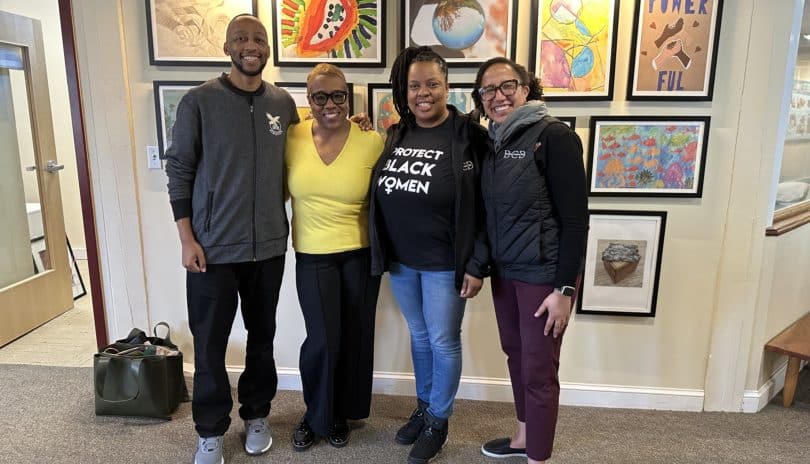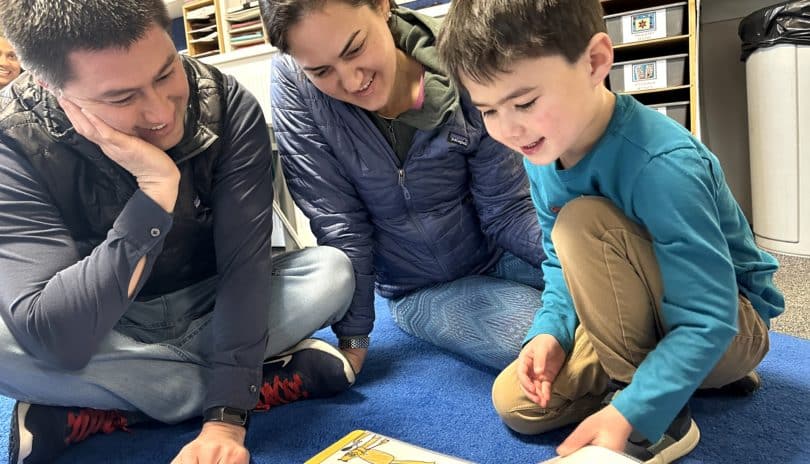In Facing History And Ourselves class, eighth graders analyzed World War II propaganda posters. Selected advertisements were placed in the middle of a wide sheet of white paper with room for writing observations, as students silently visited each poster laid out on tables, swiftly jotting notes in pencil. The class then convened in groups to discuss the meaning of the materials, while Mr. Thacher, Mr. Rudnick, and Mr. Buffum offered guidance as groups discussed the individual posters.
“Who is the intended audience?” Mr. Buffum prompted the students to consider. “What emotions are they trying to trigger with the language, art work and colors?”
Rosie the Riveter, an icon that has been used over the years to symbolize women empowerment, was one image considered by the class. One student noted that this ad was meant to appeal specifically to upper class women, calling them to join the workforce during World War II, due to the fact that lower class women were already working; therefore, the appeal would only galvanize a certain demographic of the feminist movement.
Every year, in the spring term, DCD eighth-graders take part in the Facing History course, a national curriculum that uses the Holocaust as a backdrop for exploring issues of prejudice and identity, the implications of decision making, and the impact of group dynamics. Students are expected to draw connections across a wide range of academic material in their academic careers, and they are likewise expected to bring a consistent focus to the formation of personal identity as an ethical, involved member of our community. Students will continue to explore layered subject matter in FHAO, and we look forward to watching these eighth graders grow into responsible, critical-thinking citizens.







